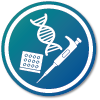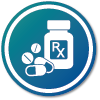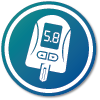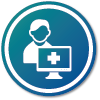 Laboratories continue to face challenges meeting the fast-paced productivity and accuracy demands of our healthcare system. The lab’s strongest tactic to stay ahead—while continuing to operate understaffed because of an industry-wide staffing shortage—is to use a powerful laboratory information system (LIS). But labs can no longer get by with just any LIS. They need a secure, robust, comprehensive solution that standardizes processes, reduces employee stress, and addresses all areas of lab testing. Having a consolidated LIS built on the latest technology to support all lab specialties, including outreach and point-of-care testing (POCT), provides an advantage for laboratories looking to retain satisfied staff and garner the trust of their providers and patients.
Laboratories continue to face challenges meeting the fast-paced productivity and accuracy demands of our healthcare system. The lab’s strongest tactic to stay ahead—while continuing to operate understaffed because of an industry-wide staffing shortage—is to use a powerful laboratory information system (LIS). But labs can no longer get by with just any LIS. They need a secure, robust, comprehensive solution that standardizes processes, reduces employee stress, and addresses all areas of lab testing. Having a consolidated LIS built on the latest technology to support all lab specialties, including outreach and point-of-care testing (POCT), provides an advantage for laboratories looking to retain satisfied staff and garner the trust of their providers and patients.
Executive Summary
- Laboratories continue to face pressure to maximize efficiency and productivity with limited staffing.
- To reach peak performance, a robust LIS is a necessity.
- For labs with multiple specialties and locations, an enterprise LIS solution can streamline processes and improve efficiencies.
- An enterprise LIS solution can increase return on investment (ROI) and improve the laboratory’s contribution to patient care.
Brief History of the LIS
The LIS, like all computer technology, has dramatically advanced over the years. Though its origin was in the 1960s, it was not until the 1980s that the LIS developed an interactive design that could store patient data in a common database, provide workstation terminals and instrument interfaces, and offer a broad focus on laboratory tasks for each department. The ongoing challenge has been to develop a solution that brings together the different perspectives of each laboratory section under a
single system design.
Maximizing the Lab’s Contribution
With exponential technological growth and ever-looming security concerns about patient data, it is imperative that healthcare organizations and laboratories employ LIS solutions that are built on modern technology to withstand rising security threats. To achieve status as a valuable contributor, laboratories need every advantage available to increase productivity while being cost-conscious. A lab’s LIS is its greatest tool to achieve these goals.
Enterprise LIS Defined
An enterprise LIS solution is used to optimize and scale day-to-day laboratory processes across all testing specialties. These solutions allow labs to scale up or down as necessary, keeping costs and resources under control. Enterprise application software provides a source of automation that frees employees to focus on hands-on lab duties. It delivers a standard set of tools and workflow solutions that reduces errors and improves accuracy. Technologies and tools within a comprehensive enterprise LIS solution—such as process automation, data analytics, outreach support, and competency assessment tracking—help employees complete their day-to-day tasks more efficiently and subsequently improve job satisfaction.
Benefits of an Enterprise LIS Suite
When your lab has the advantage of a comprehensive enterprise LIS, you gain myriad benefits. Here is a list of the top ten.
1. Increased Laboratory Productivity & Efficiency
Any LIS will help organize your processes, which can result in some efficiency improvement. However, the power and scalability of a consolidated, enterprise-level LIS offers a plethora of tools and functionality that can standardize processes to make every aspect of lab testing easier.
Having an enterprise LIS that supports your lab across specialties and locations can prevent errors and improve data accuracy. An LIS that encompasses all areas of testing and allows you to build in your workflows alleviates bottlenecks and speeds up
the entire testing process.
2. Consistent, Inspection-ready Laboratory Records
With an advanced, enterprise-level LIS that is solely focused on what the lab needs to meet its goals, your lab can stand ready for inspection at any time.
One of the key aspects of laboratory management is keeping up with regulatory requirements and preparing your lab for inspection. This can be a stressful situation if you are rushing to gather documents and write quality assurance reviews. With an enterprise solution, your lab stays inspection-ready at any time.
Lab-focused software designed with input from laboratorians means that day-to-day processes and required documentation can be automated so that when the inspector comes, most of your regulatory information is stored in your LIS ready for inspector review. With a combination of rules, data mining, quality control, and user-defined fields—all within a consolidated LIS—your solution can standardize documentation and review of most regulatory requirements.
3. Opportunities to Contribute to an Interoperable Healthcare System
Best patient care requires timely, secure sharing of patient data between providers and healthcare entities. For many years, our healthcare system has been moving toward a more interoperable model. Interoperability is the ability of different healthcare systems, including the LIS, to exchange data and work together to share patient information (e.g., medical records, test results, treatment plans) among healthcare providers and organizations.
 Having a LIS capable of complete laboratory integration enables a seamless experience for providers and patients, provides timely access to diagnostic information, and positions your lab to be a contributor within an interoperable healthcare system. Having an experienced LIS vendor that is an expert in integration and can connect its system to virtually any third-party healthcare information system helps promote interoperability.
Having a LIS capable of complete laboratory integration enables a seamless experience for providers and patients, provides timely access to diagnostic information, and positions your lab to be a contributor within an interoperable healthcare system. Having an experienced LIS vendor that is an expert in integration and can connect its system to virtually any third-party healthcare information system helps promote interoperability.
4. Scalability to Support Continued Growth
Top laboratories continually update and grow their menus to expand their diagnostic reach and meet the needs of their patient population. To do so, labs need an LIS that offers a level of scalability that allows for steady growth and adaptation to the constantly evolving healthcare informatics environment. They need an LIS that can manage large volumes of laboratory testing and consolidate reporting across multiple laboratories performing various laboratory specialties across clinical, microbiology, molecular, toxicology, pathology, and point of care.
5. Reliable, Secure Data Storage & Web Access
The COVID-19 pandemic changed the way we think about working remotely. Though behind other industries from an IT perspective, even in healthcare, the advantages of remote web access to computer systems is widely acknowledged. Likewise, the level of security threats, particularly in healthcare, has steadily increased. Each year the number of healthcare data breaches continues to rise. The healthcare industry is a major target because it offers an abundance of financially valuable personal information.
Having a web-accessible LIS, hosted in a cloud setting, allows access from wherever you need it, improves reliability, and reduces security concerns. An enterprise LIS solution allows your lab to leverage modern technology platforms and architecture designed with the latest advancements in security and data integrity.
Applications hosted in the cloud offer greater reliability than software running on in-house infrastructure. A cloud-hosted solution offers redundant infrastructure and dedicated personnel with the specific skills and resources needed to ensure continuous availability. Service-level agreements typically guarantee 24/7/365 and 99.9% availability of your solution. The cloud offers expedient disaster recovery in the case of an emergency, allowing you to restore your data quickly.
6. Support for Outreach Capabilities
Many laboratories choose to perform outreach services, which adds another level of complexity to test ordering and result reporting. Outreach testing broadly refers to laboratory testing performed for a patient who is not being seen or treated at the organization performing the lab testing. These laboratories have clients that they receive test orders from and to whom they return test results. Integration, quality, turnaround time (TAT), and providing excellent customer service are all vitally important for outreach testing.
An enterprise LIS that provides outreach support will include EHR connectivity, simplified order management, and consolidated result delivery to efficiently support the testing laboratory. Services may also include scheduling courier routes, tracking inbound client calls, providing client management reports, monitoring client supply inventories, and offering a customized, forward-facing client interface for order entry.
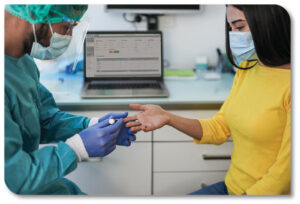 7. Data Management for Point-of-Care Testing
7. Data Management for Point-of-Care Testing
POCT continues to gain traction and popularity as the healthcare system implements processes that make access for patients more convenient. An enterprise LIS can encompass comprehensive tracking of POCT across locations. An effective POCT data management solution provides electronic connectivity that improves patient care and enhances the value of your POCT program with real-time electronic capture of POCT results. This rapid TAT enables prompt access to results for quick diagnosis and patient treatment.
One of the greatest challenges for POCT coordinators is tracking hundreds to thousands of end users across locations to fulfil the safety and regulatory requirements for competency assessments. An enterprise LIS solution can provide centralized management of operator certifications and vendor-agnostic device connectivity that enables rapid addition of new device interfaces without disruption.
8. Operational Insights from Lab Data Analysis
Labs are aware that they manage a tremendous amount of patient data. With an enterprise solution that includes business intelligence and analytics capability, labs can gain operational insights from their data to track performance and uncover areas for improvement. They can monitor personnel workloads to help address the industry’s staffing shortage and leverage analytic insights to improve patient safety and overall patient care. As the use of artificial intelligence (AI) continues to expand within the laboratory, labs poised with an enterprise solution can unlock that potential.
9. Ongoing, Specialized System Support
Working with an LIS vendor is a long-term relationship, with the vendor providing ongoing support for most of the relationship. Your LIS vendor of choice should offer multiple options for support so that you can select the level of support that fits your lab’s needs. Support should not stop after the system is installed.
10. Reduced Training Time with Intuitive UI
An LIS with configurable, intuitive user interfaces for each lab area makes it easy to learn a complex system and easy to train new users. This can be especially beneficial for labs with students or staff that rotate from lab to lab. Top LIS vendors may offer multiple options for training, embedded help in the software, online access to support, and valuable learning resources. Ideally, you should have the training you need to manage your system with minimal vendor intervention. This superior level of training allows you to make your own ongoing system changes and saves you time by eliminating the need to reach out to the vendor for every change.
Increase the Value of Your Lab & Your ROI
With a comprehensive enterprise LIS solution, labs can face industry challenges armed with a tool that supports them throughout the total testing process. The right LIS vendor and solution can help you retain satisfied staff, improve provider and client satisfaction, and enable your lab to play a larger role in improving patient care—all of which are important factors when considering your return on investment.
About Orchard Enterprise Solutions
Orchard Software’s enterprise suite of LIS solutions streamlines processes, promotes provider and staff confidence, and positions your lab to succeed and grow. Orchard Software supports its clients along every step of their LIS journey with superior, guided implementation, training, and support. Our enterprise LIS solutions help address the industry staffing shortage by improving laboratory workflow across every aspect of lab testing, including lab integration, productivity, efficiency, and inspection preparedness. Orchard’s enterprise suite of LIS solutions makes laboratory professionals’ jobs easier and increases the lab’s contribution to patient care improvements.

